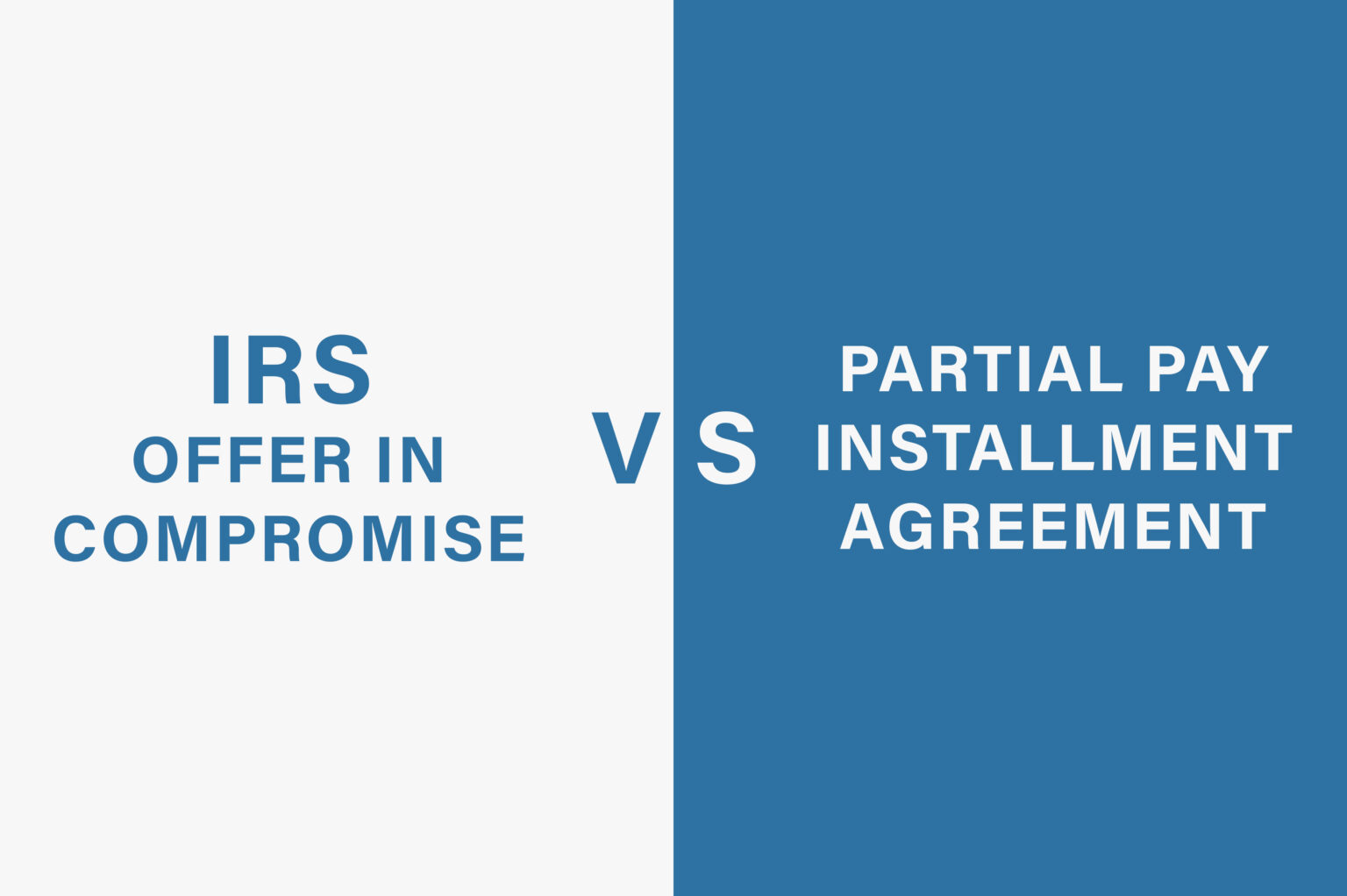If the IRS is not backing down, there is one last card to play: the IRS offer in compromise (OIC). Generally referred to as OIC, an Offer In Compromise rescues taxpayers from a disastrous situation. Simply put, OIC allows individuals to settle their tax debt for less than the money owed to the federal government. Similarly, another option for businesses and individuals sinking under debt is the Partial Pay Installment Agreement (PPIA). Even though both programs aim to help taxpayers in settling their debt, the qualification criteria differ for each. Although the IRS offers various relief programs, things can escalate to extremes if tax debt is not dealt with. Therefore, today we will explore possible lifelines for taxpayers with unpaid tax debt.
Breakdown of the IRS offer in compromise (OIC)
The IRS Offer in Compromise is a program offered by the IRS that allows taxpayers to settle their tax debts for less than the full amount owed. It is an agreement between the taxpayer and the IRS, where the taxpayer proposes to pay a reduced amount to satisfy the debt. However, there is a strict qualification criteria to be accepted in the program. Therefore, it is compulsory to have proper guidance before filing your application. Lifeback Tax Relief has been in business for over 12 years and has since helped thousands of clients settle their debt through various IRS programs. Don’t hesitate to get in touch with us, we can do the same for you!
What factors determine your eligibility for the IRS offer in compromise
The IRS doesn’t go out handling the OIC. They consider your unique set of facts and circumstances and decide whether you truly need it or not. If not, you are simply rejected and liable to pay the tax debt in full. Among other elements, the IRS takes into account your:
- Ability to pay
- Income
- Expenses
- Asset equity
Understanding partial pay installment agreement (PPIA):
Another viable option is a Partial Pay Installment Agreement (PPIA) for individuals unable to pay their tax debts in full. This program allows taxpayers to make smaller monthly payments, with the understanding that the entire debt may not be paid by the end of the statute of limitations. Furthermore, PPIA is usually a secondary option for taxpayers who fail to meet the eligibility criteria for the IRS Offer In Compromise.
Choosing between the two options requires an in-depth analysis of your financial situation. A lot of research goes into determining which plan is more likely to accept you. Although you can appeal against the decision, it is recommended to submit proper documentation when filing for the IRS Offer In Compromise the first time. To help you succeed, our experts will go above and beyond to file a strong case with reduced liability.
Pros and cons of the IRS offer in compromise and PPIA
Even though both options give ample relief, there are some strings attached. Let’s have a look at some advantages and disadvantages of the IRS offer in compromise and PPIA.
Pros |
Program |
Cons |
| Offers the potential for a significant reduction in debt
Provides a fresh start by settling the debt for a reduced sum.
Can lead to a quicker resolution of tax debt issues. |
The IRS Offer in Compromise |
Not everyone qualifies; eligibility is based on strict financial criteria.
The application process is complex and time-consuming.
The payment period may be shorter compared to a PPIA. |
| May result in a lowered overall payment compared to the full debt
Allows for a manageable monthly payment towards the debt.
Offers a flexible payment plan for a more extended repayment period.
|
Partial Pay Installment Agreement |
Offers flexibility, but the overall payment may be higher than with an OIC.
Generally less complex than OIC but still involves documentation.
Offers a longer payment period, potentially extending over several years. |
It’s important to note that the suitability of either option depends on individual circumstances. Moreover, to ensure success, consulting with tax professionals will provide a broader scope and allow you to make informed decisions.
Choosing Between the IRS offer in compromise and PPIA:
The decision between the IRS Offer In Compromise and a Partial Pay Installment agreement depends on various factors. Such as financial circumstances, eligibility, and individual preferences. Here are some considerations to help you make an informed choice:
- Financial Situation: If your financial situation is dire, and you are even struggling to pay for day-to-day expenses, the IRS Offer in Compromise might be more suitable.
- Eligibility: Consider the eligibility criteria for each program on its merit. If you don’t meet the criteria for the IRS Offer In Compromise, PPIA might be more suitable.
- Your ability to pay the debt: If you think you can clear your debt in one go for a reduced amount, the IRS offer in compromise is the best solution. If not, PPIA is more beneficial. You make payments under Collection Statute Expiration Date (CSED).
- Keeping your business afloat: Your business will get you back on your feet again. Therefore, PPIA might be a more sustainable option, so you can keep running your business activities as usual.
A stronger case means stability in the financial future
Navigating tax debts requires a careful examination of available options. Although there are choices available such as the IRS Offer In Compromise or a Partial Pay Installment Agreement, it depends on your unique circumstances. Both programs are a lifesaver to taxpayers struggling with overwhelming tax debts. But before making a decision, it’s advisable to consult with tax professionals like us. Lifeback Tax Relief can guide you through the application process and help you choose the option that aligns best with your financial goals. Remember, addressing tax debts is a step-by-step process that requires patience and due diligence. Hence, do not rush these decisions without hiring the best tax consultants in town!


